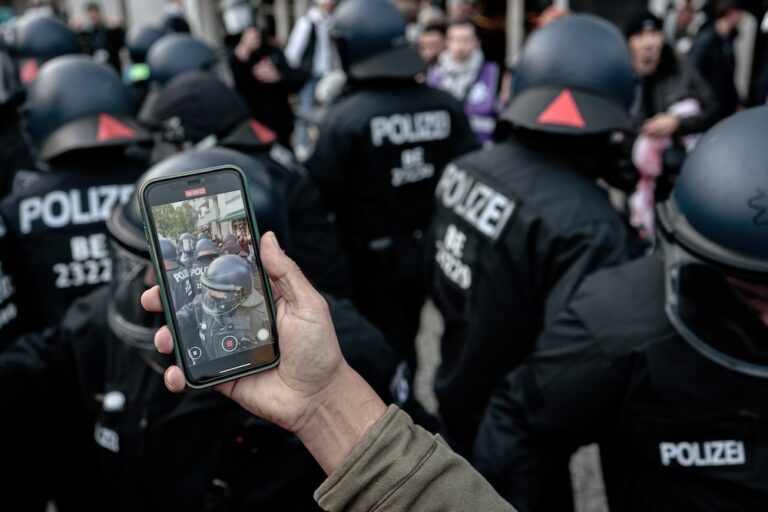A new report, debated by the UN Human Rights Council, contains a wide range of proposals which states can implement to achieve a secure environment for safe journalism; however concrete steps are needed to translate the strong support to the report in reality and combat impunity.
On 13 September 2013, the United Nations Human Rights Council debated a new report on the importance of the protection of journalists, the prevention of attacks and the fight against impunity for attacks against journalists.
The Report prepared by the Office of the United Nations High Commissioner for Human Rights argues that political commitment, backed by clear and effective legislative and practical safeguards to prevent attacks and threats to journalists, are the key elements of an effective approach to the protection of journalists.
It features a contribution from the International Federation of Journalists (IFJ) focusing on the Federation’s work on the safety of journalists such as safety training, emergency assistance from the International Safety Fund and monitoring the violations of media rights.
The new report contains a wide range of proposals which states can implement to achieve a secure environment for safe journalism.
They include the suggestion that violence against journalists should be considered an aggravating circumstance, leading to harsher sentences against journalists’ attackers. This idea is supported by some academics for its deterrence potential. The report expands on this by suggesting that investigations into attack on media should look into any link between the suspected attack and the journalist’s professional activity.
The report further advocates the creation of special units within the national legal systems to investigate attacks on journalists, an early warning system to facilitate timely intervention, and a rapid response mechanism to provide journalists with access to the authorities and protective measures.
During the debate on the report, remarks by members of the Human Rights Council were overwhelmingly positive and welcomed the measures proposed in the report.
However, in a strongly worded statement on behalf of over 70 countries, Austria warned that concrete steps are needed to translate the strong support to the report in reality. The statement specifically called for governments to take a public position at the highest level about the important role of journalists. It also suggested organising a separate event for a detailed debate on the report’s recommendations.
The IFJ joined the call for an uncompromising implementation of the conclusions and recommendations made in the report. In a statement on the report, the Federation argues that the establishment of special investigative units dedicated to tackle the violence targeting media could contribute to greater accountability and offer genuine deterrence.
However, the Federation cautioned against any failure to act, saying that the current safety media crisis required drastic measures in order to address the pervasive culture of impunity.
It further called on the Office of the High Commissioner for Human Rights to set up a mechanism to monitor and report the extent to which governments abide by international laws and standards concerning the safety of journalists and keep the situation under review.
Finally, the IFJ appealed to governments and the United Nations High Commission for Refugees to assist journalists whose lives are at risk by considering issuing them with emergency visas and laisser-passer to safety.


